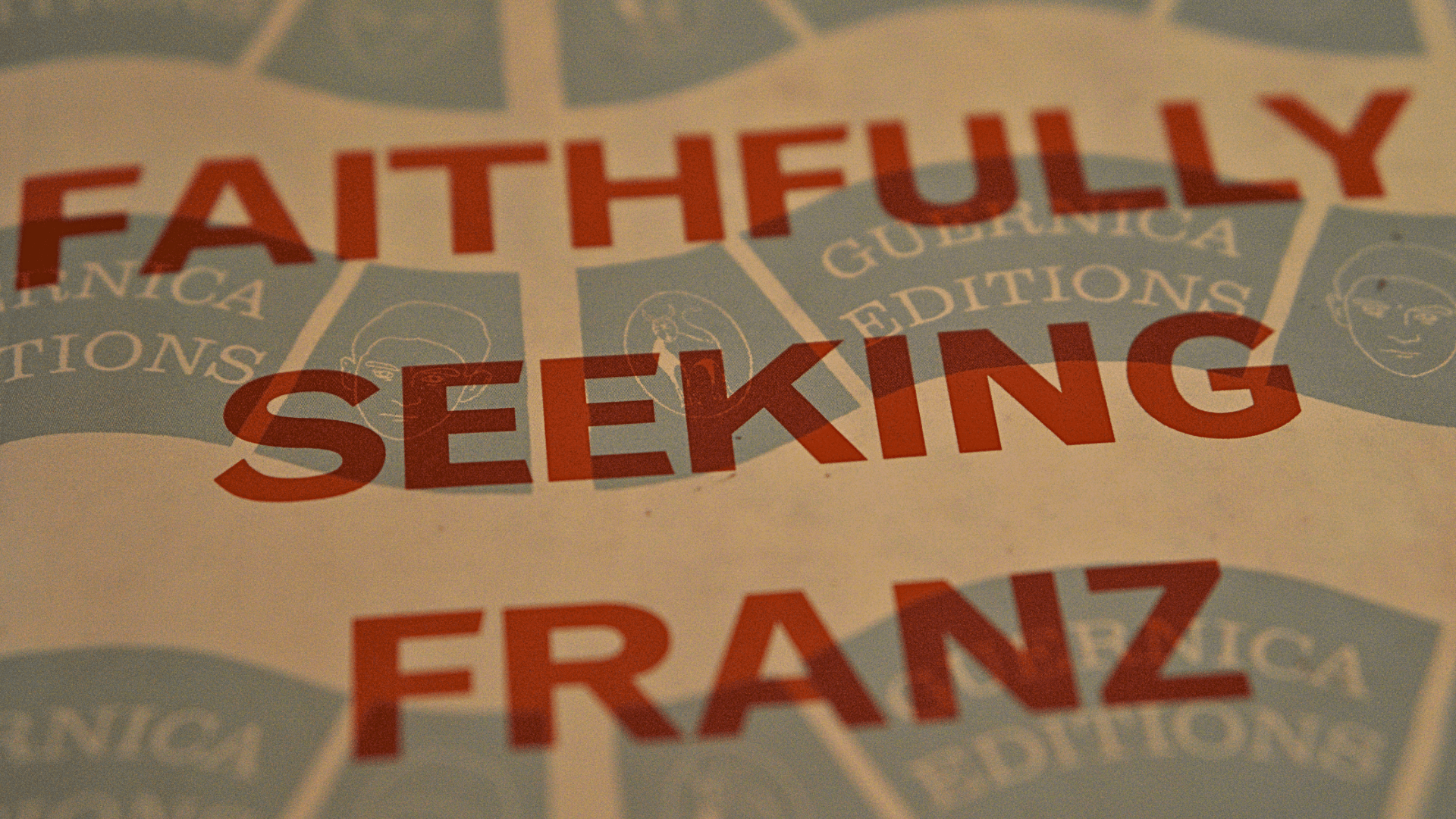In Faithfully Seeking Franz (Guernica Editions), poet/writer Elana Wolff takes readers on a personal odyssey with one of the most enigmatic writers of the twentieth century — Franz Kafka. Using a variety of approaches, she reflects on Kafka’s life and work. Familiar readers will discover new insights into Kafka’s oeuvre. And for unfamiliar readers, the book serves as a strong introduction to his vast writings.
The book centres around Wolff’s quest for Kafka. She examines a select yet wide range of Kafka’s work, including his unfinished novels, short stories, diaries, fables, aphorisms, and letters. In addition, her exploration delves into the tension between biography and fiction, trauma and inspiration, as well as the nexus between reality and imagination.
Wolff‘s formative encounter with Kafka began in her adolescence: “The spark was kindled outside the walls of a Toronto high school (Kafka wasn’t in the curriculum), in the pages of his quasi-Gothic novella, The Metamorphosis. It was the creaturely protagonist Gregor Samsa who first brought me to question what it means to be human. So unsettled was I by the story—dire for me from the first inimitable sentence—that reading would not be the same again.” This childhood fascination illuminates her book, with a fire of passion and immediacy.
Her work embraces several genres: biography, parable, memoir, poetry, translation, aphorism, reflections, and photography, which engage the reader on many levels. Some chapters echo and extend Kafka’s themes. Others focus on aspects of Kafka’s life, showing how his Jewish background, relationships with family, work, and love affairs, intersect with his writing.
Wolff (E.), accompanied by her trusted companion (M.), travels to some of Kafka’s spaces, including the Czech Republic, Germany, and Israel, to better understand how each location may have affected his creative process. Throughout their journey, M. plays the skeptic to some of E.’s imaginative musings.
However, their journey takes some unexpected turns, similar to Josef K. navigating the spiraling networks in The Trial. In the chapter “Back at The Office,” M. and E. stay overnight at the Hotel Century Old Town in Prague. Their room was advertised as Kafka’s former office, where he worked as a lawyer for the Worker’s Accident Insurance Institute.
E. links her experience with Gaston Bachelard’s The Poetics of Space, which probes into the relationship “between the mind and its surroundings,” and how “the spaces we live and work in have a great power for the integration of our thoughts.” In the room, she notices a sheep relief sculpture in the building across the street. She connects the sculpture to an entry from one of Kafka’s diaries: “I am really like a lost sheep … or like a sheep running after this sheep.”
Three years later, E. and M. revisit the same hotel. When reflecting on Kafka’s senior position, E. assumes that his office would be situated on a higher floor. She soon discovers from a hotel employee that he worked in two offices. E. and M. decide to stay in the upper office suite; E. then wonders if her initial sheep observation was accurate: “Maybe when he stood in his top-floor office, inhaling the fresh air at his high window, he saw an open city vista, no building with no sheep relief at all.” This section mirrors the feelings of bewilderment in Kafka’s fiction.
At another occurrence, E. and M. experience strange synchronicities that blur the boundaries between imagination and reality. They visit Kafka’s gravestone at the New Jewish Cemetery in Strašnice, to pay their respects by reciting a prayer. E. asks for a sign to feel Kafka’s presence in the space. As they exit the cemetery, E. notices a jackdaw, a kavka. The jackdaw relates to Kafka’s writings, as some of his short stories feature anthropomorphic animals that speak — one of his most noteworthy aphorisms is “A Cage Went in Search For a Bird.”
E. contemplates this mysterious sign by saying, “I’m sensitive to resemblances, synchronicities. Signs. They’re conformation of seeing, affirmation of meaning. Antonyms of randomness. Evidence of the outer world and one’s inner world connecting. Sometimes the connections I perceive are weak, I have to admit. But in this case, the timing and likeness were just too right.”
In the “Notes on Questing” section, Wolff skillfully incorporates a writing style reminiscent of Kafka’s notebooks and journals. She writes aphorisms to introspect on her endeavour: “The visible withdraws into the invisible, the unrevealed—into spaces of outward pause. This doesn’t mean the quest is done.”
“The quester has a passion for the visible, for outlines and traces—in the light and in the dark. A passion for presence.” This writing reminded me of Northrop Frye’s approach to literary criticism, where the critic co-creates and builds upon the source material to find new patterns. By not hesitating to add her artistic responses, E. enhances her book with further perceptiveness.
In sum, Faithfully Seeking Franz offers readers a goldmine of insight. Wolff intuits the interconnected layers of Kafka’s writings and life with great empathy and imagination. From the intimate exploration of Kafka’s personal spaces to the contemplation of his profound themes, Wolff’s enthusiasm shines through on every page. Readers will find this an enriching literary experience. Faithfully Seeking Franz is available on Amazon, Guernica Editions, and Indigo.


